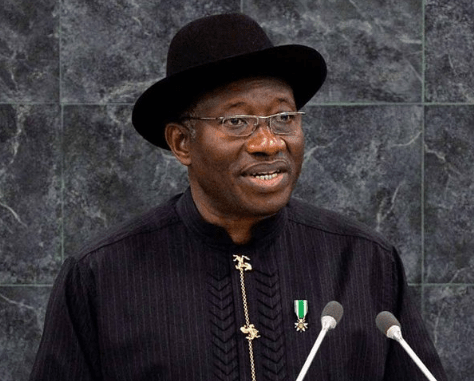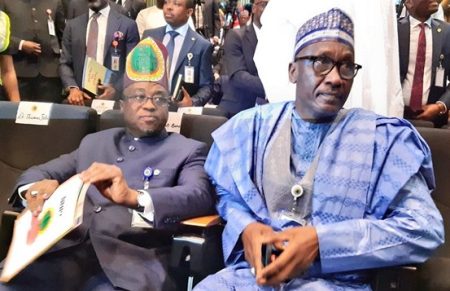
– Gets SweetCrude’s Nigerian Content Icon Award
Mkpoikana Udoma
Yenagoa — Former President Goodluck Jonathan has revealed the urgency and motivation behind his signing of the Nigerian Oil and Gas Industry Content Development, NOGICD Act in 2010, saying the move was driven by the need to stop Nigeria’s long-standing economic losses in the oil and gas sector and avoid the pitfalls of the past.
Jonathan, who was honored with the Nigerian Content Icon of the Year award at the maiden Champions of Nigerian Content Awards organized by SweetCrude Reports in partnership with the Nigerian Content Development and Monitoring Board, NCDMB, recounted his decision to swiftly assent to the bill during his tenure as Acting President.
He drew parallels between Nigeria’s early oil history and China’s, revealing a key moment from a delegation visit he led to China in 2000 while serving as Deputy Governor of Bayelsa State.
“Why the speed in signing that law? Actually, the bill was a private member’s bill, not an executive one. I must commend Senator Lee Maeba of Rivers State and others who initiated it. The moment the Minister of Petroleum briefed me, I was ready. I had seen enough to know we had to act fast.
“Western companies discovered oil in Nigeria in 1956 and in China two years later in 1958. By 2000, China was manufacturing almost all the equipment needed for its oil industry. But in Nigeria, nearly everything had to be imported,” Jonathan lamented.
“If a company embarks on a $100 billion oil project here, barely $50 million stays in the local economy. The rest is spent abroad. That had to change.”
Jonathan also shared a striking anecdote about a conversation with Uganda’s President Yoweri Museveni, who told him he rejected an early oil proposal from a company, because there were no oil and gas experts in Uganda except a kerosene retail clerk.
“Museveni said, ‘I don’t want to make the mistake Nigeria made.’ He quickly sent Ugandan youths to study sciences and petroleum engineering abroad to build internal capacity,” Jonathan recalled.
Reflecting on Nigeria’s own missteps, Jonathan noted that the country had operated its oil sector for decades without laws designed to secure local benefits.
“The first law regulating the sector was the Mineral Ordinance of 1886, Nigeria had no input. Then came the Mineral Oil Ordinance of 1914, and much later, the Petroleum Act of 1969. The real game-changer was the local content law in 2010, followed by the eventual passage of the Petroleum Industry Act (PIA) in 2021.”
Jonathan also credited the National Assembly for pushing the law through, stating that in a rare reversal of typical procedure, it was the legislature that “vetoed” the presidency.
“In other countries, the President vetoes bills. But in Nigeria, if the President doesn’t assent in 30 days, the National Assembly can override it. That’s how the NOGICD law was passed,” he said.
He praised the current and past leadership of the NCDMB for sustaining the vision of local content and expressed confidence in the sector’s future.
“With what I’ve seen and what we’ve heard, I believe Nigeria’s oil industry will continue to improve under this law,” Jonathan said.
The Champions of Nigerian Content Awards took place on the sidelines of the 2025 edition of the Nigerian Oil and Gas Opportunity Fair, NOGOF, hosted at the Local Content Towers in Yenagoa, Bayelsa State.



